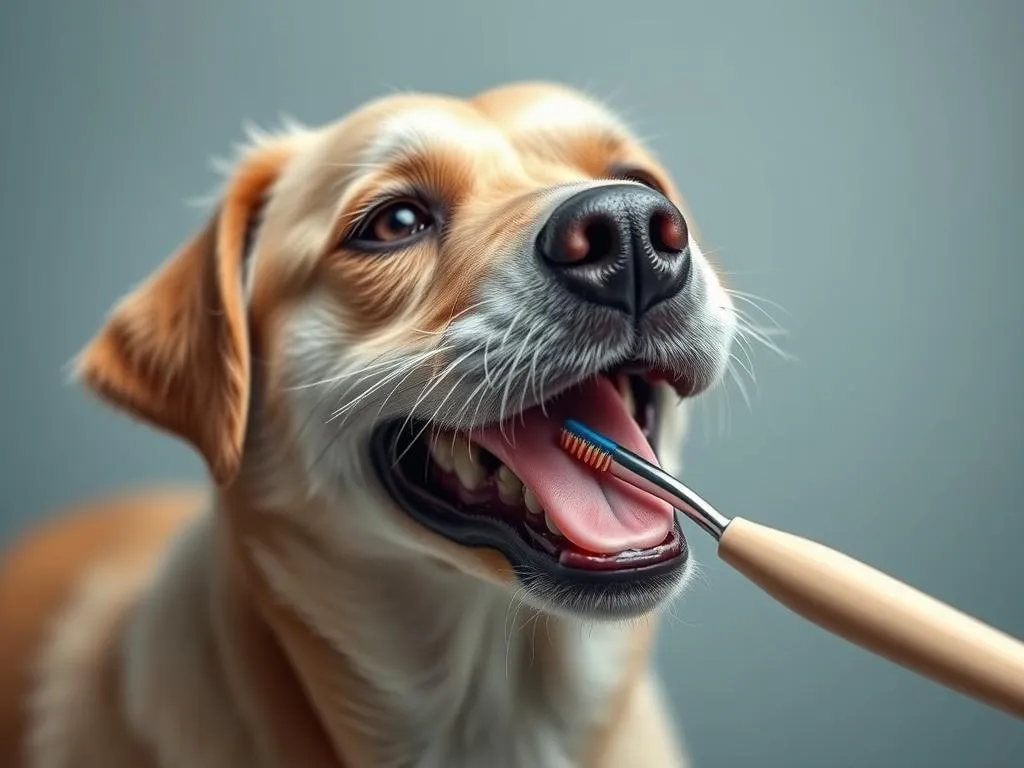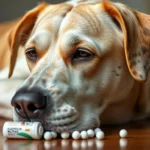
Introduction
Maintaining dental health is crucial for dogs, yet many pet owners find it challenging to brush their dog’s teeth regularly. The process can be met with resistance, and the time commitment can feel overwhelming. Fortunately, there are effective alternatives to brushing dogs’ teeth that can help keep your pet’s mouth healthy without the daily struggle of brushing. This article explores these alternatives, their benefits, and how they can fit seamlessly into your dog’s dental care routine.
Understanding Canine Dental Health
Importance of Dental Hygiene
Dental disease is one of the most common health issues affecting dogs, with studies showing that over 80% of dogs exhibit some form of dental disease by the age of three. Poor dental hygiene not only leads to bad breath but can also result in more serious conditions such as gum disease, tooth loss, and even systemic health issues affecting vital organs like the heart and kidneys.
Common Dental Issues in Dogs
Many dogs suffer from dental problems, including:
- Tartar Buildup: A hard, calcified deposit that can lead to gum inflammation.
- Periodontal Disease: An advanced form of gum disease that can cause damage to the supporting structures of the teeth.
Owners should be vigilant for signs of dental issues, which may include:
- Drooling or Excessive Saliva: This could indicate oral discomfort or disease.
- Difficulty Eating or Chewing: If your dog shows reluctance to eat hard food, it may be a sign of dental pain.
Challenges of Brushing Dogs’ Teeth
Behavioral Issues
Many dogs resist having their teeth brushed, often due to fear or discomfort. To overcome this, consider introducing the toothbrush gradually, starting with letting your dog sniff and lick it before attempting to brush. Positive reinforcement, such as treats or praise, can also help make the experience more enjoyable for both you and your dog.
Time and Commitment
Brushing a dog’s teeth effectively requires time and commitment. Ideally, teeth should be brushed daily, which can be a challenge for busy pet owners. Finding a routine that works for both you and your dog is essential to ensure dental health is not neglected.
Alternatives to Brushing Dogs’ Teeth
Dental Chews and Treats
One of the most popular alternatives to brushing dogs’ teeth is the use of dental chews and treats. These products are designed to reduce plaque and tartar buildup while freshening your dog’s breath.
- How They Work: The mechanical action of chewing helps to scrape away food particles and plaque from the teeth.
- Recommended Brands: Look for products that have the Veterinary Oral Health Council (VOHC) seal of approval. Some popular brands include Greenies, Virbac C.E.T., and Nylabone.
Pros: Convenient and easy to incorporate into your dog’s routine.
Cons: Some treats can be high in calories, leading to weight gain if not monitored.
Water Additives
Dental water additives are another effective alternative. These products are added to your dog’s drinking water and work to reduce plaque and bacteria in the mouth.
- How They Promote Oral Health: They contain enzymes that help break down plaque and freshen breath.
- Recommended Products: Look for vet-approved brands such as TropiClean or Vet’s Best.
Usage Tips: Follow the instructions on the product label for the correct dosage and frequency.
Dental Wipes and Gels
Dental wipes and gels are convenient products that can be used to clean your dog’s teeth without the need for a toothbrush.
- Overview: Dental wipes can be rubbed directly onto the teeth and gums, while gels can be applied with your finger or a cotton swab.
Advantages: Easy to use and can be done quickly.
Limitations: They may not be as effective as brushing or chewing for heavy tartar buildup.
Raw Bones and Natural Chewing
Raw bones can serve as a natural dental care alternative, offering both chewing satisfaction and dental benefits.
- Benefits: Chewing on raw bones can help mechanically clean teeth and gums.
- Safety Considerations: Always supervise your dog when chewing bones and choose appropriate sizes to avoid choking. Raw chicken or beef bones are generally safe, while cooked bones can splinter.
Alternatives: If raw bones are not an option, consider natural chews like antlers or bully sticks, which can also promote dental health.
Professional Dental Cleanings
No matter which alternatives you choose, regular professional dental cleanings are vital for maintaining your dog’s oral health.
- Importance: These cleanings can remove tartar buildup that home care cannot manage and check for underlying dental issues.
- What to Expect: Your vet will perform a thorough examination, typically under anesthesia, to clean your dog’s teeth and gums effectively.
Frequency Recommendations: Vets usually recommend professional cleanings once a year, but this may vary based on your dog’s breed and dental health.
Integrating Alternatives into Your Dog’s Routine
Developing a Dental Care Plan
Creating a personalized dental care plan is key to maintaining your dog’s oral health.
- Steps: Start by assessing your dog’s current dental condition, then decide which alternatives to incorporate into your routine. Ensure to include a mix of methods for comprehensive care.
Consistency: Regularity is essential. Try to integrate dental care into your existing routine to make it easier to remember.
Combining Methods for Optimal Results
Combining various alternatives can yield the best results for your dog’s dental health. For instance, you might use dental chews a few times a week, incorporate a water additive daily, and schedule professional cleanings annually.
Case Study: A dog owner successfully combined dental chews with water additives and noticed a significant improvement in their dog’s breath and overall dental health within a few months.
Monitoring Your Dog’s Dental Health
Regular Check-ups
Regular veterinary visits are critical for maintaining your dog’s dental health. During these check-ups, your vet will assess your dog’s mouth and provide recommendations tailored to their needs.
What to Expect: Your vet will check for signs of gum disease, tooth decay, and other dental issues during the examination.
Home Observations
As a dog owner, you should be vigilant about monitoring your pet’s dental health at home.
- Key Signs to Monitor: Look for changes in eating habits, excessive drooling, or foul breath. If you notice any of these signs, it may be time to consult your veterinarian.
FAQs About Dog Dental Care
Common Questions from Pet Owners
Q: Are dental chews as effective as brushing?
A: While dental chews can help reduce plaque and tartar, they are not a complete substitute for brushing. Combining both methods is the best approach.
Q: How often should I use dental water additives?
A: Most manufacturers recommend daily use, but always check the specific product instructions for optimal results.
Q: Can I use human toothpaste for my dog?
A: No, human toothpaste can be harmful to dogs. Always use toothpaste specifically formulated for pets.
Q: What if my dog refuses to chew on dental treats?
A: Try various types and textures of dental chews or consider incorporating dental wipes or gels instead.
Conclusion
Exploring alternatives to brushing dogs’ teeth is essential for maintaining your pet’s dental health. By utilizing dental chews, water additives, dental wipes, and professional cleanings, you can create a comprehensive dental care plan that works for you and your dog. Maintaining a proactive approach to canine dental health is vital, and integrating these alternatives will help ensure your furry friend stays healthy and happy. Share your experiences or questions about dog dental care, and remember to consult your veterinarian for personalized advice tailored to your dog’s needs.









